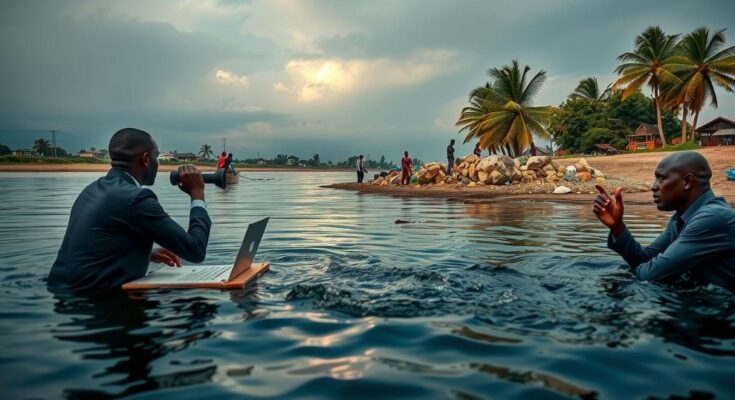On December 4, 2024, Egypt and Uganda signed a joint declaration to enhance bilateral relations and ensure regular consultations about the Nile River’s water management. The agreement aims to meet mutual interests while addressing potential conflicts arising from the Entebbe Agreement. It includes commitments to cooperate across multiple sectors, including agriculture and security, with further consultations planned for early 2025.
On December 4, 2024, the Egyptian Minister of Foreign Affairs, Badr Abdelatty, and the Ugandan Minister of State for International Affairs, Henry Okello, formalized a joint declaration aimed at fostering bilateral cooperation in various sectors and ensuring regular consultations regarding the waters of the Nile River. This declaration is a product of political discussions held in Cairo, attended by a high-level Ugandan delegation, including Minister of Water and Environment Sam Cheptoris.
As part of this agreement, both nations committed to consult regularly on Nile River water resources, seeking mutual benefits and cooperation in line with international law. The aim is to reinforce their interests and broader African goals, as stated by the Egyptian Foreign Ministry. Egypt has also promised to support Uganda’s developmental projects adhering to its national priorities, referencing existing successful initiatives such as the Owen Falls Dam.
During a joint press briefing, Okello emphasized Uganda’s commitment to not permitting disruptions in Nile water supplies to downstream nations. Notably, Uganda is a signatory to the Entebbe Agreement, which has raised concerns for Egypt and Sudan regarding their historical water rights, as it allows upstream nations the potential to undertake projects affecting downstream water access without prior consent. In his remarks, Egypt’s Minister of Irrigation recently urged for a reevaluation of the agreement to resume constructive negotiations on Nile Basin cooperation that would not disadvantage any party involved.
In addition to water management, the joint declaration outlines enhanced collaboration between Egypt and Uganda across several domains, including defense, security, law enforcement, peacebuilding, and counterterrorism initiatives. This partnership also encompasses technical cooperation in areas such as irrigation, agriculture, and construction. Further, both governments plan to encourage private sector engagement and investment to bolster trade between the two nations. The next round of consultations is set to take place in Kampala in early 2025.
This agreement comes amid ongoing tensions over Nile waters, primarily due to the Entebbe Agreement, which various upstream countries signed in 2010, raising alarms in Egypt and Sudan about their water rights. The ongoing negotiations highlight the delicate balance both downstream and upstream countries must maintain to ensure equitable access to this crucial resource. This joint declaration is a strategic move to strengthen relations between Egypt and Uganda while navigating complex regional water politics.
In conclusion, the joint declaration between Egypt and Uganda signifies a vital step toward enhancing bilateral relations and cooperative strategies concerning the Nile River. With a shared commitment to regular consultations, both nations aim to foster mutually beneficial initiatives while addressing the broader implications of water management within the region. This collaboration is essential not only for their national interests but also for promoting stability and cooperation in the Nile Basin.
Original Source: www.egypttoday.com




